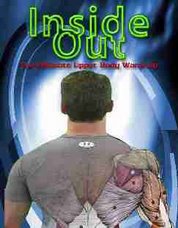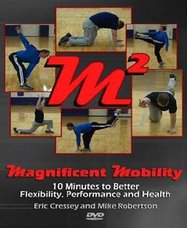So this blog post is going to essentially be my "newsletter" for the week - I hope you enjoy it!
Last week, Bill Hartman and I were having a discussion in between clients at the gym. Essentially, we were talking about the long-term health/repercussions of playing sports at an elite level. I was reading an article about Greg Oden, quite possibly one of the most talented basketball players to come out of Indiana. In case you've been living under a rock the past year, Greg had microfracture knee surgery in the off-season last year and missed his entire rookie year.
As we were discussing things, I started thinking about the long-term effects of the microfracture procedure, and knee surgeries in general. If you're unfamiliar with it, here's the jist of what they do: When hyaline cartilage wears down (or is removed) you essentially have a bone-on-bone contact area. This bone-on-bone isn't good as it wears down the joint surfaces, and as you move plant and cut, lift heavy things, etc., it leads to the progression of osteoarthritic changes in the knee. Certain forces are more injurious or damaging to the knee, but to prevent this bone-on-bone doctors will go in and drill directly into the bony areas. The goal of a microfracture procedure is to make the bone bleed out; the ensuing hole is filled in/covered with fibrocartilage. Unfortunately, while hyaline cartilage (i.e. your meniscus) is very resilient, fibrocartilage isn't nearly as resilient.
If you follow the NBA, you know that quite a few big name players have undergone the microfracture procedue - Jason Kidd, Chris Webber, Greg Oden, Amare Stoudemire, Zach Randolph, Anfernee "Penny" Hardaway, etc. As well, if you followed their careers post-surgery, the results were very different. Kidd and Stoudemire returned with great success, while many of the others (most notably Hardaway and Webber) were robbed of their trademark explosiveness and had their careers cut short.
So what does all this have to do with you? That's a great question - and after my long-winded preface, here's what I want you to remember: Always think about the long-term. What effects do the things you're doing right now have on your future health and well-being?
Now please understand I'm not trying to sway you one way or the other. I remember a while back being in Dr. Klootwyk's office (he's the knee surgeon for the Colts), and there was an autographed picture of a Colts player with this message inscribed:
"Doc - Thanks for fixing the money maker!"
My goal isn't to sway you one way or the other - if your goal is to squat a 1000 pounds or rush for 1,500 yards in the NFL, great! Just understand the long-term effects that might have on your body. I can tell you this: If I had to choose between being set financially for life at the age of 26 or 27 and possibly having a knee replacement later on in life, I can tell you which one I would choose without a doubt!
I think sometimes we fail to appreciate the health and well-being of our bodies; my goal is to have a strong, healthy, and resilient body for many years to come. Having had a knee surgery myself, I understand what I am capable of, and the repercussions that certain things have on my body.
That's also why I created my Bulletproof Knees manual - I wanted to figure out the things that I could do to stay healthy and strong as long as possible. I've had a lot of questions lately from young people whose knees are beat to hell, and that's part of the reason I'm typing this right now. If you take the steps to get yourself healthy RIGHT NOW and stay that way, you'll be so much better over the long haul, regardless of your long-term goals.
Stay strong and have a great week!
MR
High Octane Corrective Exercise and Performance Enhancement | www.RobertsonTrainingSystems.com
Tuesday, August 19, 2008
Thinking Long Term...
Subscribe to:
Post Comments (Atom)








No comments:
Post a Comment